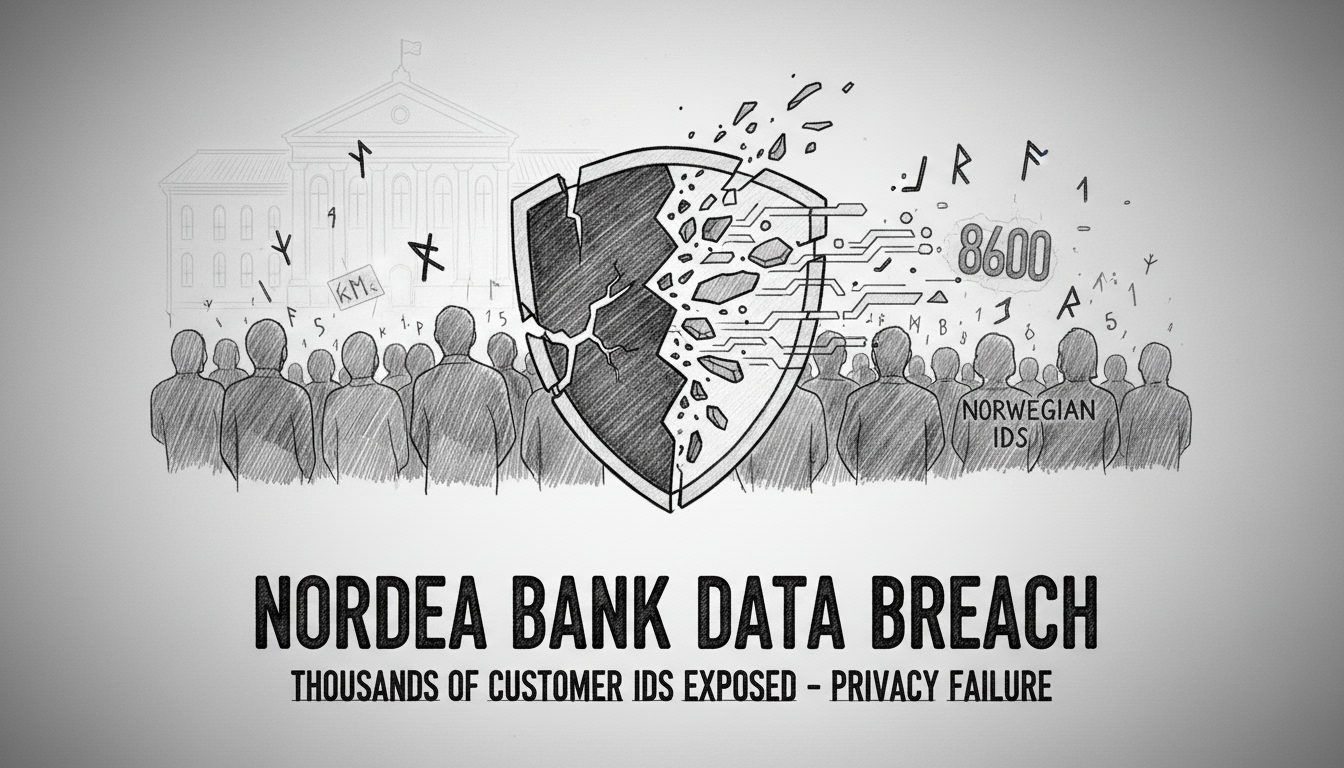Nordea Bank accidentally sent personal identification numbers for 8,600 customers to 1,400 other clients in eastern Norway. The banking giant confirmed the serious data breach occurred Thursday morning. A customer event invitation list contained sensitive personal information that should never have been shared.
Christian Steffensen, Nordea's communications director, called the incident a serious human error. He stated the bank deeply regrets what happened. The list included names and national identity numbers of local customers in the Innlandet region. These numbers function like Social Security numbers in other countries and represent highly sensitive information.
Norwegian data protection authorities have been notified about the breach. The country maintains strict privacy laws under the GDPR framework. Banks face particularly rigorous requirements for handling customer data. This incident could trigger substantial fines and regulatory scrutiny.
Data breaches in Nordic banking remain relatively rare but carry serious consequences. Sweden's Handelsbanken faced similar issues last year when customer data was improperly shared. Nordic consumers typically trust their financial institutions with personal information. Incidents like this undermine that confidence.
What does this mean for affected customers? Identity numbers combined with names create prime targets for fraud. Criminals could potentially open credit accounts or commit other financial crimes. Nordea must now provide credit monitoring and identity protection services. The bank will likely face customer complaints and potential lawsuits.
Norwegian banks have invested heavily in digital security systems in recent years. Human errors often prove more difficult to prevent than technical failures. This incident shows that even established financial institutions can make basic mistakes. Proper data handling protocols apparently failed at multiple levels.
The timing couldn't be worse for Nordic banking confidence. Consumers increasingly rely on digital banking services across Norway, Sweden, Denmark and Finland. Trust forms the foundation of these relationships. When that trust breaks down, customers may reconsider their banking choices.
What happens next? Norwegian data authorities will investigate how this breach occurred. They will examine whether Nordea followed proper data protection procedures. The bank must demonstrate it has fixed the underlying issues. Affected customers deserve transparent communication about protection measures.
Nordic banking regulations require immediate breach notifications to authorities. Customers should receive clear information about their rights and protections. The Data Protection Authority could impose fines reaching 4% of global revenue for serious violations. This provides strong incentive for proper data handling.
International readers in Norway should monitor their financial accounts closely. Check for unusual activity and consider credit freezes if concerned. Nordic banks generally offer strong consumer protections, but vigilance remains important after any data exposure.

